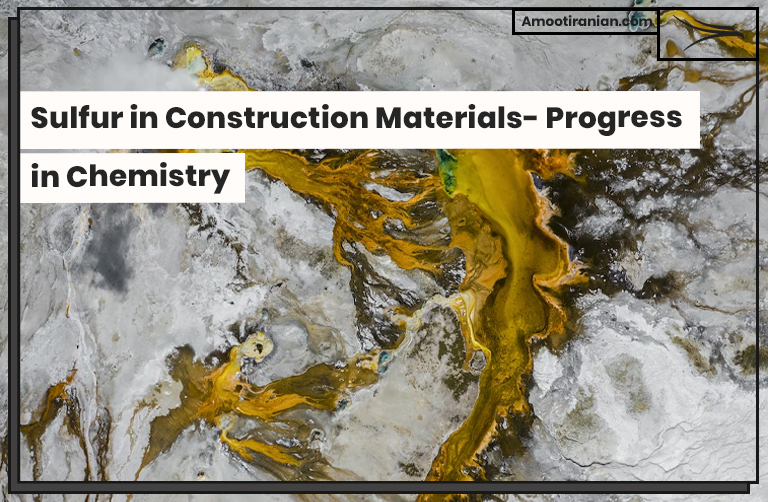.

.
Sulfur with the symbol of S and atomic number of 16 is a chemical, abundant, multivalent, and nonmetallic element. Sulfur is mainly used to produce sulfuric acid and the major application of sulfuric acid is to make chemical fertilizers.
Sulfur is also applied in production of rubber, paper, sugar, detergent, pigment, plastic, drugs, soap and etc.
.
It is worth noting to mention another novel use of sulfur in building and construction industry.
The amounts of sulfur and sulfur products that are being produced from secondary sources, including sour gas, crude oil, metal sulfide ores, and coal is increasing significantly and it appreciates scientists to investigate new applications for sulfur whose main use is sulfuric acid production. Sulfur has been investigated for production of the following products in the field of construction:
.
1.Sulfur Concretes
Sulfur concrete (SC) is made from sulfur and aggregate. Aggregate is made of gravel or crushed rocks and sand. As you know cement and water are important compounds in normal concrete but they are not part of the sulfur concrete.
Sulfur and aggregate are combined, then the concrete is heated above the melting point of sulfur ca. 140 °C. After cooling the concrete, it reaches a high strength.
Sulfur concrete is a corrosion-resistant construction material with superior mechanical properties.
Therefore, the main use of SC has been as a replacement for PCC in industrial plant areas where acid and metallic salt environments result in the destruction of PCC.
The in-place cost of SC is more than PCC but we should consider the fact that SC has no need for protective coatings and repair. Also sulfur concrete has a fast setting time because it achieves most of its mechanical strength in less than one day.
The SC production is still in the developmental stage, but it is being improved significantly as more experience is gained. It is important to consider that SC like wood and plastics may burn if exposed to open flame.
.
2. Sulfur-Extended Asphalt
As the name “sulfur-extended asphalt” suggests, sulfur is used to extend asphalt in paving materials as a means of conserving asphalt. The use of sulfur as an additive in paving mixtures provides materials with new engineering properties while replacing part of the asphalt used and thus saving energy.
Mixtures employing up to 30 wt pet S show equivalent mechanical properties compared with usual asphalt, while 40 wt pet S results in superior stability, resistance to rutting, and fatigue durability! Sulfur substitution at higher levels results in pavements with increased stability.
.

.
3. Sulfur Spray Coatings
Sulfur spray coatings have many different uses including surface-bond construction techniques, mine wall sealing and support, and sulfur coatings for land stabilization and dust prevention.
Other uses are in containment reservoirs and ponds and as corrosion-resistant coatings used to protect vats, tanks, sumps, silos, storage pads, foundations, pilings, equipment bases, floors, and walls. In general, sulfur coatings are used mostly in chemical, metallurgical, and food processing plants where commonly used materials are subject to corrosion.
Sulfur spray coating mixtures usually include 75~95% sulfur, 5~15% fillers, 0~10% fibers, and 2~15% chemical modifiers. The proportion of each component depends on its properties and on the intended use of the spray coating.
